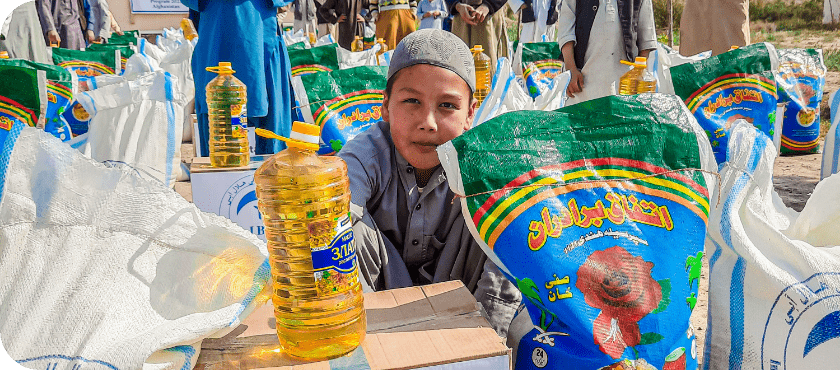Afghanistan
Afghanistan faces one of the world’s most pressing humanitarian crises.
Today, 23.7 million Afghans require urgent humanitarian support, and over 5.3 million Afghan refugees have been displaced beyond the country’s borders. Years of conflict, economic collapse, and natural disasters have devastated the country, and 1 out of 2 Afghans continues to grapple with poverty.
Lack of Aid in Afghanistan
The suspension of international aid following a power shift in 2021 has dealt a massive blow to the people of Afghanistan, who largely depended on foreign assistance for survival. As sanctions continue to weigh heavily, the Afghan people find it increasingly difficult to meet their basic needs. Even today, the humanitarian response in Afghanistan remains underfunded.
Escalating Conflict
Civilians, particularly women and children, continue to bear the brunt of ongoing violence in Afghanistan. In 2021 alone, civilian casualties reached record levels.
Food Insecurity
Over a third of the population — 14.2 million people — are experiencing high levels of acute food insecurity (IPC Phase 3 or above) due to the climate crisis and soaring food prices. Of these, 2.9 million are in IPC Phase 4 (Emergency), meaning they are just one step away from famine.
The Impact of Humanitarian Aid in Afghanistan
Despite the near-total collapse of Afghanistan’s economy in 2021, there have been marginal improvements in families’ abilities to meet their needs. This progress is largely due to humanitarian support, in the form of direct aid as well as livelihood support. This shows that with the help of sustained humanitarian aid and development, a brighter future is possible.

1989
Started work in Afghanistan
42.6m
Population
3
Active Programs
105,171
People impacted in 2023-24

Support the people of Afghanistan
IDRF’s Response in Afghanistan
Following the recent earthquakes, we provided urgent aid, like food, clean water, shelter, and hygiene products to displaced families.
We equip young Afghans with skills to achieve financial independence, enabling them to support their families during this economic crisis.
We're offering comprehensive aid to financially disadvantaged students. This includes providing financial assistance, school supplies, transportation, and essential medical care.